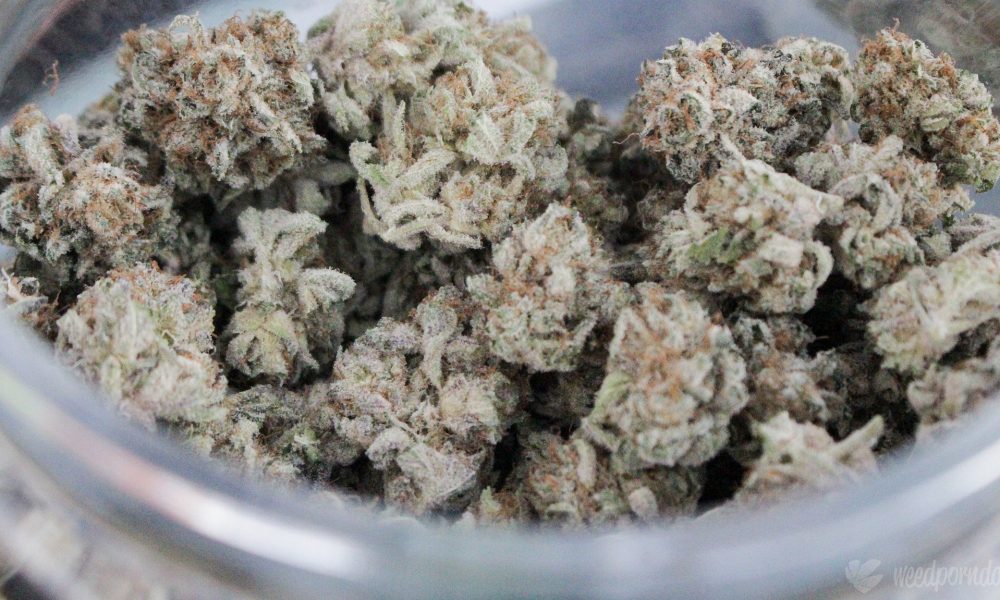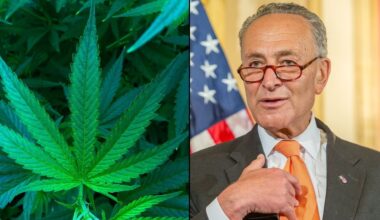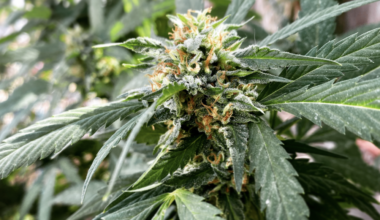The U.S. Department of Veterans Affairs (VA) under the Biden administration says it continues to oppose a bill that would require it to conduct clinical trials into the therapeutic potential of marijuana for military veterans.
That’s despite the fact that multiple veterans service organizations such as the American Legion and Disabled American Veterans are voicing support for the proposal.
At a hearing before the House Veterans’ Affairs Health Subcommittee on Wednesday, a VA representative discussed numerous pieces of veterans-related legislation that members were considering. Rep. Lou Correa’s (D-CA) VA Cannabis Research Act was among those that the department said it does not support.
The bill, earlier versions of which cleared the full House Veterans’ Affairs Committee in 2020 and 2018, would mandate that VA launch a series of clinical trials on using medical marijuana to treat PTSD and chronic pain.
Correa told colleagues in his testimony that he has worked closely with veterans since the time he served as a state lawmaker.
“In my role, I met and worked with veterans struggling with their invisible wounds of war,” he said. “They explained to me that they didn’t like being prescribed opioids and other medications. They wanted to be able to access cannabis to ease their pain without the same side effects or addictive properties of opioids. When I came to Congress, I wanted to continue my work to provide our veterans with the treatments they want.”
He said that his proposal is “a pragmatic and bipartisan piece of legislation that would advance our understanding of the impacts of medicinal cannabis usage and could improve the lives of veterans and other Americans.”
Opioids shouldn’t be the only pain treatment option for veterans struggling with PTSD and chronic pain. We need to pass the VA Medicinal Cannabis Research Act to explore how #cannabis can provide a safe, effective alternative.
— Rep. Lou Correa (@RepLouCorrea) October 13, 2021
In its own testimony, however, VA said that while it isn’t ideologically opposed to the measure, it views it as “redundant” and excessively prescriptive.
“The proposed legislation is not consistent with VA’s practice of ensuring scientific merit as the basis for a randomized clinical trial,” VA’s David Carroll said in testimony before the subcommittee.
The VA official argued that any clinical trials involving human subjects that carriers potential risks must use the “smallest number of participants needed to avoid unnecessarily putting subjects at risk.” And as far as marijuana is concerned, some effects “are not known, thus a circumscribed approach to determine dose, administration modality and best outcome measure must be shown in a proof-of-concept approach to ensure the validity of the research.”
Additionally, Carroll said certain requirements stipulated in the bill such as studying seven different cannabis varieties is “not consistent with the current state of scientific evidence, which suggests that smaller, early phase, controlled clinical trials with a focused set of specific aims are optimal to determine proof of concept for using cannabis to treat specific conditions.”
He argued that there would need to be a “specific rationale” for studying each variety, saying that “progress in cannabis research must start with a scientific query of what is already known for specific diagnostic categories of interest, then moving to next level clinical investigation.”
And what’s more, VA is “already dedicating resources and research expertise to study the effects of cannabis on conditions affecting veterans,” Carroll said—though advocates and key lawmakers don’t view those ongoing studies as sufficient.
Subcommittee Chairwoman Julia Brownley (D-CA) said in her opening remarks at the hearing that the bill would at “long last” direct VA to conduct “rigorous” research on the role of cannabis in “easing veterans’ suffering.”
Later, she pressed Carroll, saying, “If the VA is not going to do the research on the veteran population, then, really, who is? I feel like the buck sort of stops with us.”
The official replied by saying that the the department “strongly supports” research but reiterated that it has concerns with the prescriptive nature of Correa’s legislation on full-scale clinical trials.
“We don’t want to do anything other than the best science and we don’t want to put any veterans at risk,” Carroll said.
The department’s response to the bill is consistent with its past testimony—but it still comes as a disappointment to advocates who had hoped VA under Biden would ultimately embrace the modest reform.
Hopes were raised even higher after the bill sponsor, Correa, recently informed a separate House panel that he’d had a conversation with VA Secretary Denis McDonough about the very issue of marijuana and veterans.
Groups that represent military veterans, meanwhile, backed the legislation in their testimony.
Veterans of Foreign Wars of the United States said, for example, that its members “tell us that medicinal cannabis has helped them cope with chronic pain and other service-connected health conditions.”
“They cannot receive this service at VA because of VA’s bureaucratic hurdles,” the group said. “While VA has testified that it has the authority to study Schedule 1 drugs, it has failed to do so, and veterans are tired of waiting,” it continued. “This bill would prevent VA from further delaying needed research.”
American Legion said the bill “will help alleviate…stringent guidelines” on studies and “ensures there is adequate and appropriate research done on the impacts of medicinal cannabis.”
“It is imperative that Department of Veterans Affairs continue to explore alternative treatments to ensure those suffering from PTSD and chronic pain are provided the best possible care,” the group said.
Disabled American Veterans also backs the bill, saying “we support more comprehensive and scientifically rigorous research by the VA into the therapeutic benefits and risks of cannabis and cannabis-derived products as a possible treatment for service-connected disabled veterans.”
Paralyzed Veterans of America pointed to the “growing body of evidence that cannabinoids are effective for treating conditions like chronic pain, chemotherapy induced nausea and vomiting, sleep disturbances related to obstructive sleep apnea, multiple sclerosis spasticity symptoms, and fibromyalgia.”
“A series of clinical trials on the use of medicinal cannabis would help to determine if it could provide any medical benefits for veterans,” it said.
The Association of VA Psychologist Leaders said that “to keep our veterans safe from the possible risks and to better understand some of the possible benefits of medicinal cannabis, VA must conduct a more comprehensive study than those already underway.”
In addition to his standalone bill that was before the committee on Wednesday, Correa separately proposed requiring the VA cannabis studies as an amendment to a defense spending bill that passed the House late last month. But he withdrew it prior to a House Rules Committee hearing.
—
Marijuana Moment is already tracking more than 1,200 cannabis, psychedelics and drug policy bills in state legislatures and Congress this year. Patreon supporters pledging at least $25/month get access to our interactive maps, charts and hearing calendar so they don’t miss any developments.![]()
Learn more about our marijuana bill tracker and become a supporter on Patreon to get access.
—
A Senate committee in June held a hearing on a bill to similarly require the department to conduct clinical trials into the therapeutic potential of marijuana for military veterans with PTSD and chronic pain—but a VA representative said that the Biden administration is opposed to the reform.
Responding to that earlier testimony on Wednesday, Correa pointed out that some of the existing studies the department is touting exclude THC. “There is more work to be done to ensure that we have all of the facts for our veterans,” he said.
Meanwhile, Subcommittee Ranking Member Jack Bergman (R-MI) expressed disappointment that a separate Republican-led medical cannabis bill was not on the panel’s agenda, saying it is “less prescriptive” than the Correa proposal being heard. The legislation is “much more likely to produce actionable results about the effects of medicinal marijuana on veterans with PTSD, chronic pain and more,” he argued.
The sponsor of that bill, Rep. Mariannette Miller-Meeks (R-IA), asked VA’s Carroll if he supported her bill at the hearing, but the official replied that he wasn’t prepared to discuss it.
During the last Congress, in 2019, the VA under President Donald Trump came out against a series of bills that were designed to protect benefits for veterans who use marijuana, allow the department’s doctors to recommend medical cannabis and expand research into the plant’s therapeutic potential.
In 2018, the House Veterans’ Affairs Committee was the first congressional panel to approve a marijuana reform bill by passing an earlier version of legislation to encourage VA to conduct research on the medical benefits of cannabis.
Despite VA’s stated opposition to a variety of marijuana reform proposals in the past, an official with the department did say recently that it is “very closely” following research into the potential therapeutic benefits of psychedelics like MDMA for military veterans.
Earlier this year, a bipartisan coalition of congressional lawmakers reintroduced bills that would federally legalize medical cannabis for military veterans.
Rep. Greg Steube (R-FL) in January introduced a proposal aimed at ensuring that military veterans aren’t penalized for using medical cannabis in compliance with state law. It would also codify that VA doctors are allowed to discuss the risks and benefits of marijuana with their patients.
VA doctors are currently permitted to discuss cannabis with patients and document their usage in medical records, and those veteran patients are already shielded by agency policy from losing their benefits for marijuana use—but the bill would enshrine those policies into federal statute so they could not be administratively changed in the future.
A U.S. military veteran who was deported to Jamaica over a marijuana conviction was recently allowed to return to the country following a concerted push for relief by members of Congress.
Sens. Alex Padilla (D-CA), Tim Kaine (D-VA) and Mark Warner (D-VA) sent a letter to the head of the U.S. Department of Homeland Security (DHS) in July requesting that he reopen the case.
Thirty members of the Congressional Black Caucus separately urged the Biden administration to reopen certain deportation cases, including those involving cannabis such as Bailey’s.
Meanwhile, congressional leaders are working to end federal marijuana prohibition altogether.
The House Judiciary Committee last month approved a bill sponsored by its chairman to federally legalize marijuana and promote social equity.
Separately, Senate Majority Leader Chuck Schumer (D-NY), Finance Committee Chairman Ron Wyden (R-OR) and Sen. Cory Booker (D-NJ) are also leading the charge on a legalization bill in their chamber. But weeks after a public comment period on a draft version of the proposal closed, finalized text has yet to be formally filed—and it’s far from certain that Schumer will be able to find enough votes to advance the comprehensive reform through his chamber.
Voters Across The U.S. Will Decide On Marijuana And Psychedelics Ballot Measures Next Month
Photo courtesy of Brian Shamblen.
Medical Disclaimer:
The information provided in these blog posts is intended for general informational and educational purposes only. It is not a substitute for professional medical advice, diagnosis, or treatment. Always seek the advice of your physician or other qualified healthcare provider with any questions you may have regarding a medical condition. The use of any information provided in these blog posts is solely at your own risk. The authors and the website do not recommend or endorse any specific products, treatments, or procedures mentioned. Reliance on any information in these blog posts is solely at your own discretion.







